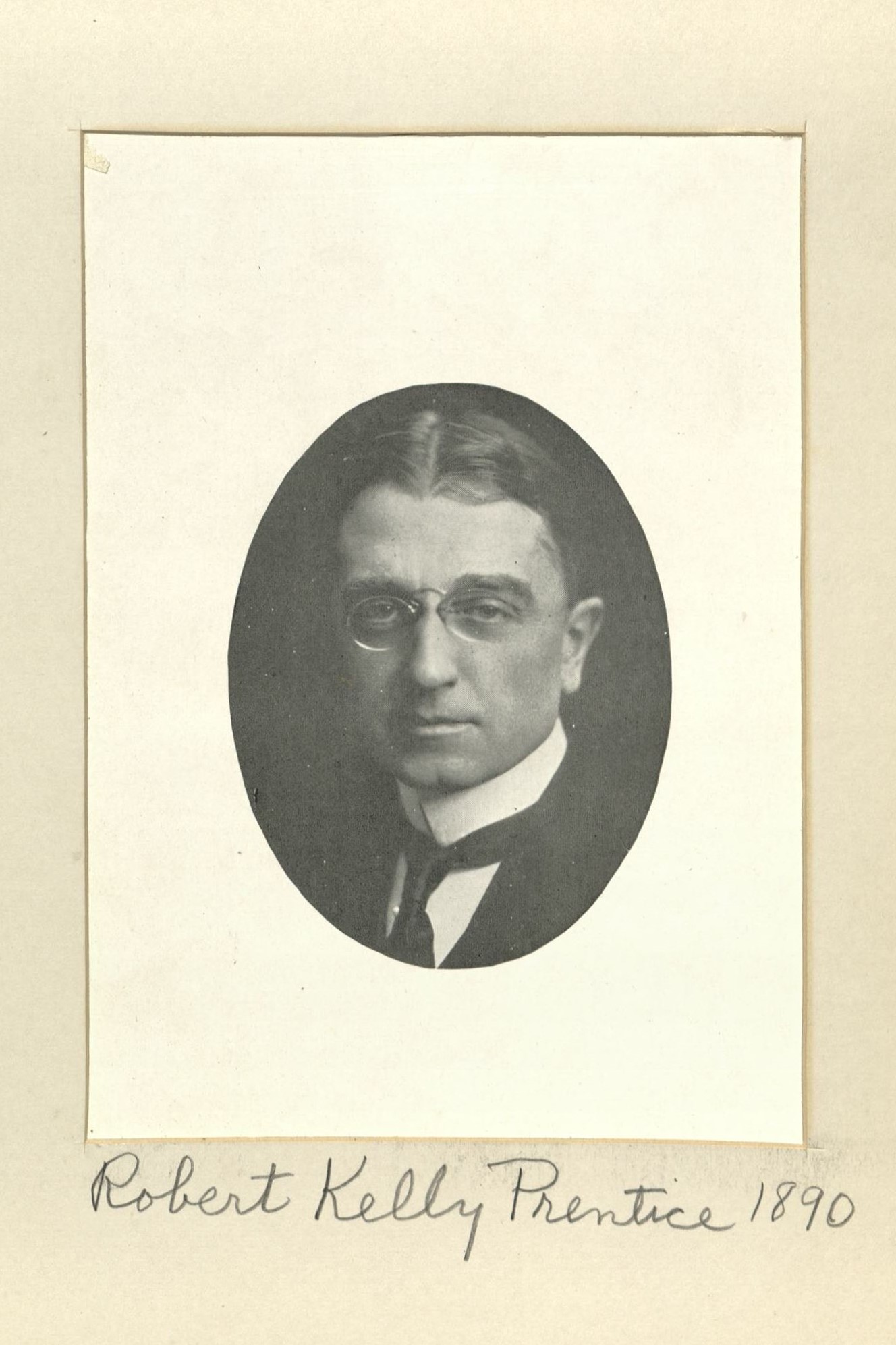Lawyer
Centurion, 1890–1958
Born 20 October 1863 in New York (Manhattan), New York
Died 6 April 1958 in New York (Manhattan), New York
Buried South Cemetery , Colebrook, Connecticut
, Colebrook, Connecticut
Proposed by Edward G. Janeway, Edgar S. Auchincloss, and James P. Kimball
Elected 7 June 1890 at age twenty-six
Archivist’s Note: Son of William Packer Prentice; brother of William Kelly Prentice; nephew of Robert Kelly; grandson of Robert Kelly; cousin of E. Parmalee Prentice. He was the last surviving Centurion to have been a member at the old clubhouse on East 15th Street.
Century Memorial
When Robert Kelly Prentice was born, the Civil War was going on. He was elected to the Century in 1890, when he was 26 years old, and so he was a member for 68 years.
Kelly Prentice, as he was affectionately called, graduated from Princeton (after helping to found the Ivy Club) in 1884 and from the Columbia Law School two years later. He was admitted to the Bar the same year, and went into his father’s law office. Later he was a partner in the firm of Prentice and Townsend, which was dissolved in 1945. He was a competent lawyer, much involved with railroad reorganizations and bond-holders committees. But he was also a public-spirited citizen and spent time and effort on good works. The chief of these was the Hospital for Special Surgery, of which he was a director for more than fifty years and Vice President since 1924. He was also Churchwarden and General Counsel to the Church of the Incarnation, a long-time member of Squadron A, serving on the staff of Governor Theodore Roosevelt, and a faithful worker on numerous committees of the Bar Associations.
He lived a long time, so that most of us now alive who knew him think of him as an Elder Statesman. He was of an arresting aspect, and when he began to talk his eyes seemed to start from his head and his hair to stand on end. He spoke in a high, nasal tone—not unpleasant, but very piercing—and what he had to say was couched in a salty brevity more persuasive than any measured periods of oratory. When he spoke at board meetings, his remarks were usually followed by a silence while the other members thought it out; for he was prone to raise searching and legal questions that had not occurred to anyone else, but which were always deserving of an answer.
All his life he was a colorful citizen of the Town, constructive and useful, witty and shrewd.
George W. Martin
1959 Century Association Yearbook

